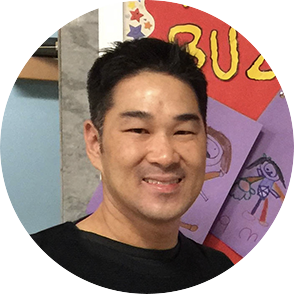Five Healthy Ways to Deal with Rejection

Rejection is not necessarily a sign that you're doing something wrong. It's just part of submitting your work. If you're querying agents, you mostly don't get replies, so a personalized rejection can actually be a sign that you're doing something right. Once you have an agent to send those submissions, the rejections come from editors.
If you self publish your book, you might be able to skip the rejection up front, but then you're dealing with it after publication. One of my friends who self-published was hurt that his traditionally published friends didn't want to help promote his book. Schools and libraries weren't interested in buying it, and bookstores weren't interested in carrying it.
If you're putting your work out there, rejection is inevitable, and it can take a toll on your mental health if you let it. The good news is that you're in control of how you respond to rejection.
Amy Morin, author of 13 THINGS MENTALLY STRONG PEOPLE DON'T DO, wrote a post called “5 Ways Mentally Strong People Deal with Rejection” that I referenced while writing this. If you're going through a hard time, I also recommend the following TED Talk of hers about building mental strength.
(If you're just here for the rejection tips, you can skip this for now. Come back when you're ready. You might need tissues.)
Tip #1: Your Emotions Are Valid
Getting a rejection can feel rotten, or it can feel amazing. I've curled up in a ball and cried on my couch over an agent's response, and I've pinned a rejection with a compliment in it above my computer before as motivation. Any emotion you feel about an experience is valid, and it's best to let yourself feel it.
If I have a strong emotional response, I usually talk through it with my critique group (a common practice in my group) and/or my husband. Working through the emotion helps me move on.
Tip #2: Every Rejection Is a Step to Success
You can't sign with an agent or get a book deal if you don't send your work out. I've spent over a decade coaching kids' soccer, and every season (almost every practice), I tell the kids that they miss all of the shots they don't take. You can't let fear of rejection keep you from trying.
When I was selling poems regularly, it was because every time I got a rejection from a magazine, I sent another submission out. Sometimes I sent out two or three.
One of my friends in the community I live in once told me that she'd given up after her first rejection. Please don't do that.
Did you know that the multi-award-winning Kate DiCamillo spent six years collecting 473 rejections before she sold BECAUSE OF WINN DIXIE? What if she had given up after one rejection? What if after her 400th rejection, she'd taken it as a sign that she just wasn't meant to be a writer? I love her books, so I'm glad she kept going.
Tip #3: Be Kind to Yourself
Do you ever have thoughts about yourself that maybe aren't so nice? I have to watch myself, or I will start thinking things about myself that nobody else would ever be mean enough to say.
A couple of years ago, a friend of mine recommended some books that recommended using affirmations. So, I tried it. Saying affirmations was hard at first, but it's gotten a lot easier, and it works. I'm in a much better place than I was before I started using them.
Keep your thoughts about yourself loving and encouraging.
Tip #4: You Are Not Your Book
When people reject our book projects, the rejection can feel personal. But your book isn't you, and even if someone were to reject you personally, that rejection doesn't define who you are. You are so much more than just a person who makes books.
You are still exactly the same person you were before you received a rejection. And you can always make more books.
Tip #5: Make More Books
Take whatever feedback or experience you've gained through your submissions and rejections to make your work even better.
Working on your next book project will take your mind off the rejections and give you hope. It also makes you more appealing to agents and publishers looking for someone who can create a following through a body of work.
Thanks for reading!
If you have tips for responding to rejection, please share in the comments!
Blog Contributors

Myrna Foster writes and edits content for Storyteller Academy and the WriteRiders Newsletter for SCBWI Nevada. She has spent a lot of time teaching and coaching children, including five years as a preschool teacher. She's also worked as a journalist, and Highlights High Five has published six of her poems.

Arree Chung is an author/illustrator and the founder of Storyteller Academy. Arree’s Ninja! series has received starred reviews from Kirkus and School Library Journal. Kirkus also gave a starred review to Mixed, which recently won the FCGB award.
Today Arree lives a creative life, making stories for children. Arree spends most of his time making picture books, writing middle grade novels, and sharing his love for art, design, and storytelling with kids and dreamers everywhere.
